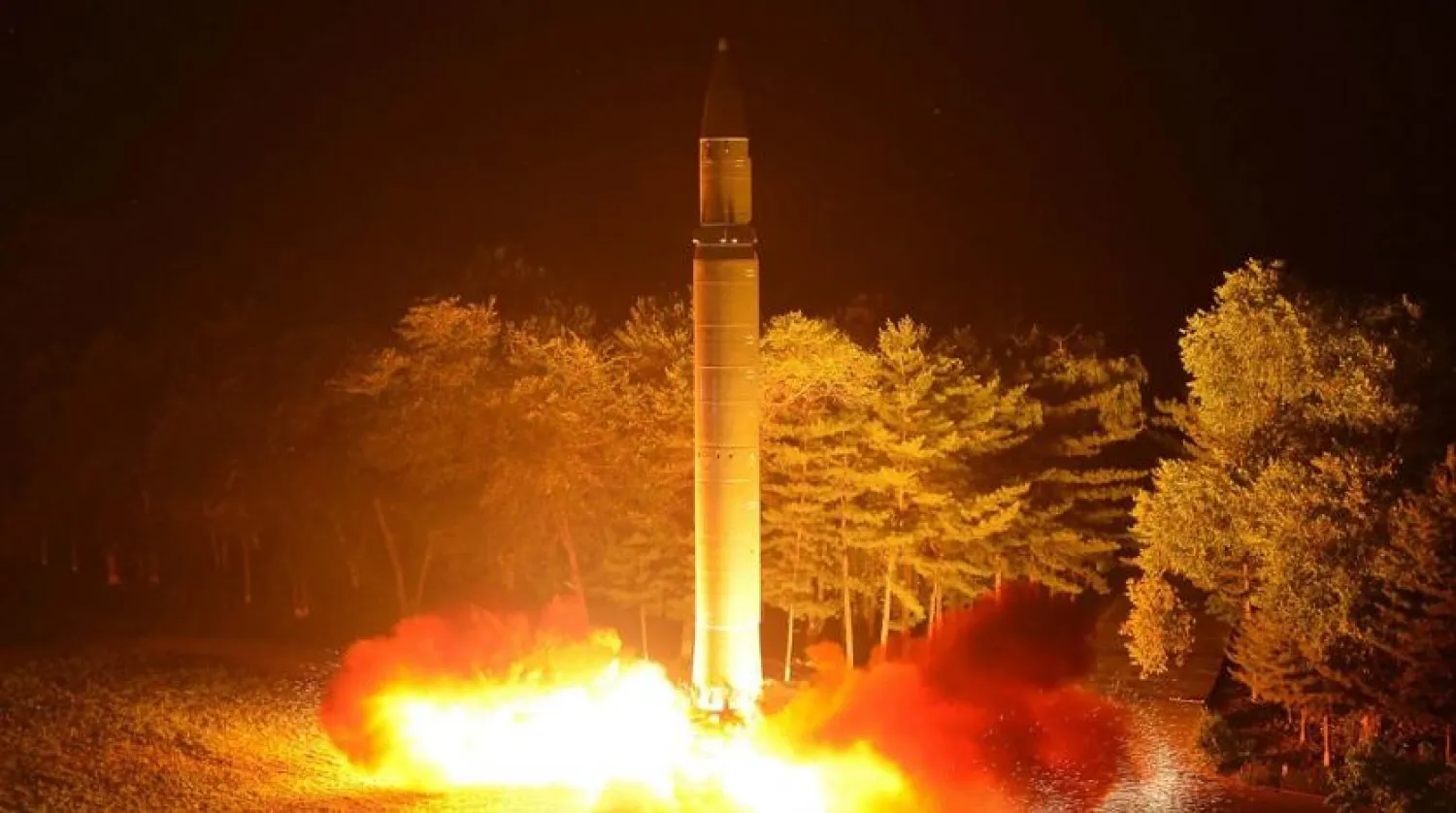Nuclear-armed North Korea fired what appeared to be a short-range missile into the sea on Tuesday, the South's military said, as Pyongyang's UN ambassador insisted it had an undeniable right to test its weapons.
The projectile was fired from the northern province of Jagang into waters off the east coast, according to the South's Joint Chiefs of Staff, and a Japanese defense ministry spokesman told AFP it "appears to be a ballistic missile".
Less than an hour later, Pyongyang's United Nations ambassador Kim Song told the UN General Assembly in New York: "Nobody can deny the right to self-defense for the DPRK", the North's official name.
It is the latest in a series of mixed messages from Pyongyang, coming days after leader Kim Jong Un's influential sister Kim Yo Jong, a key adviser to her brother, dangled the prospect of an inter-Korean summit.
But she insisted that "impartiality" and mutual respect would be required, calling for the South to "stop spouting an impudent remark".
She condemned as "double standards" South Korean and US criticism of the North's military developments, while the allies build up their own capacities.
Washington condemned the North's latest launch, calling it a "threat" to Pyongyang's neighbors and the international community.
"This launch is in violation of multiple UN Security Council Resolutions," the US State Department said in a statement, adding: "Our commitment to the defense of the Republic of Korea and Japan remains ironclad."
In recent days, South Korean President Moon Jae-in, who has only months left in office, reiterated at the UN General Assembly his longstanding calls for a formal declaration of an end to the Korean War.
The North invaded the South in 1950 and hostilities ceased three years later with an armistice rather than a peace treaty, leaving them technically still in a state of conflict.
Pyongyang is under multiple sets of international sanctions over its banned programs to develop nuclear weapons and ballistic missiles.
In his own General Assembly speech, ambassador Kim Song said North Korea had a right to "develop, test, manufacture and possess" weapons systems equivalent to those of the South and its US ally.
"We are just building up our national defiance in order to defend ourselves and reliably safeguard the security and peace of the country," he said.
- 'Heinous human rights abuser' -
Pyongyang has already carried out several missile launches this month, one involving long-range cruise missiles and another that the South's military said was of short-range ballistic missiles.
Seoul also successfully test-fired a submarine-launched ballistic missile for the first time, making it one of a handful of nations with the advanced technology.
Talks between Pyongyang and Washington have been largely at a standstill since a 2019 summit in Hanoi between leader Kim and then-president Donald Trump collapsed over sanctions relief and what the North would be willing to give up in return.
The North has since then repeatedly excoriated the South and its president Moon, and blown up a liaison office on its side of the border that Seoul had built.
After an emergency meeting, the South's National Security Committee issued a statement Tuesday saying it "expressed regret for the launch at a time when political stability on the Korean Peninsula is very critical".
Yang Moo-jin, a professor at the University of North Korean Studies, told AFP: "It looks like North Korea wants to see how genuine Seoul is when it comes to its willingness to improve inter-Korean ties -- and to officially end the Korean War."
"Pyongyang will monitor and study Moon's reaction after today's launch and decide on what they want to do on things such as restoring the inter-Korean hotline," he added.
Washington stations around 28,500 troops in the South to defend it against its neighbor and protect US interests in northeast Asia.
The administration of US President Joe Biden has repeatedly said that it is willing to meet North Korean officials anywhere, at any time, without preconditions, in its efforts to seek denuclearization.
But the North has not shown any willingness to give up its arsenal, which it says it needs to defend itself against a US invasion.
On Monday, the North's official Korean Central News Agency carried an article calling the United States "the most heinous human rights abuser in the world" for its sanctions policies on various countries.
The North was also due to open a session of its rubber-stamp parliament, the Supreme People's Assembly, on Tuesday.









